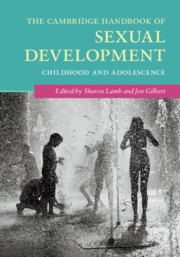Book contents
- The Cambridge Handbook of Sexual Development
- The Cambridge Handbook of Sexual Development
- Copyright page
- Contents
- Notes on Contributors
- Acknowledgments
- Introduction
- Part I What Is Sexual Development?
- Part II How Do We Study Sexual Development?
- 14 Critical Methods for Studying Adolescent Sexuality
- 15 Loving Possibilities in Studies of Sexuality Education and Youth
- 16 Difficulties in the Study, Research, and Pedagogy of Sexuality
- 17 Numbers and Stories
- 18 Doing It: Participatory Visual Methodologies and Youth Sexuality Research
- 19 Research under Surveillance
- Part III Media, Family, Education
- Index
- References
16 - Difficulties in the Study, Research, and Pedagogy of Sexuality
from Part II - How Do We Study Sexual Development?
Published online by Cambridge University Press: 27 December 2018
- The Cambridge Handbook of Sexual Development
- The Cambridge Handbook of Sexual Development
- Copyright page
- Contents
- Notes on Contributors
- Acknowledgments
- Introduction
- Part I What Is Sexual Development?
- Part II How Do We Study Sexual Development?
- 14 Critical Methods for Studying Adolescent Sexuality
- 15 Loving Possibilities in Studies of Sexuality Education and Youth
- 16 Difficulties in the Study, Research, and Pedagogy of Sexuality
- 17 Numbers and Stories
- 18 Doing It: Participatory Visual Methodologies and Youth Sexuality Research
- 19 Research under Surveillance
- Part III Media, Family, Education
- Index
- References
Summary
- Type
- Chapter
- Information
- The Cambridge Handbook of Sexual DevelopmentChildhood and Adolescence, pp. 315 - 335Publisher: Cambridge University PressPrint publication year: 2018
References
- 1
- Cited by



